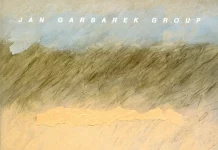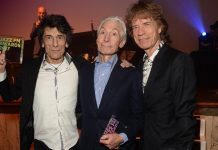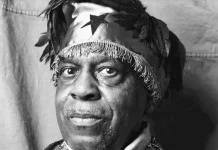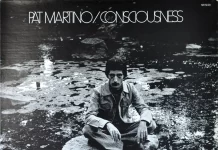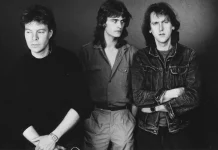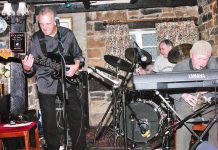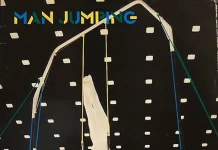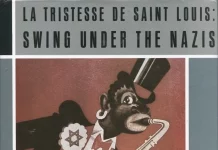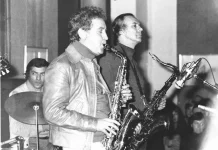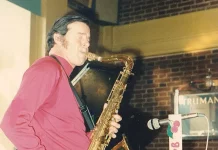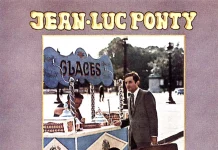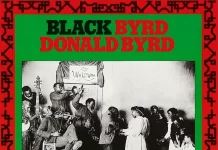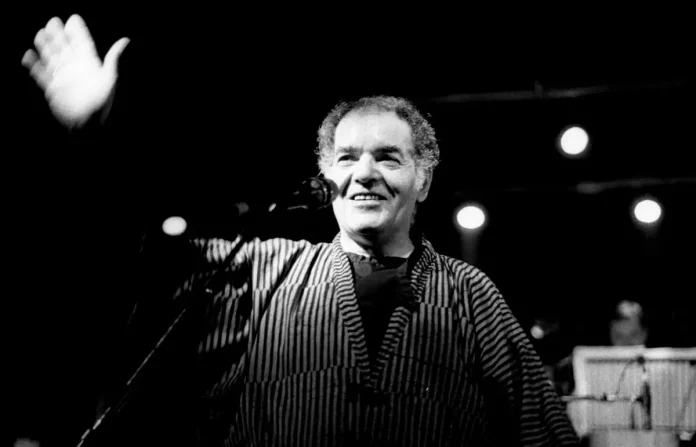
Although numerous musicians have made use of George Russell’s 1959 Lydian Chromatic Concept, as many or more will have wondered what bearing it has on practical music-making. Russell’s response to sceptics echoes the title of the Miles Davis tune he arranged for his big band – So What.
‘I don’t hear a new direction. Nobody out there is really pushing this music. This is an anti-innovative time. There are young people with new music but they can’t get arrested, so I’m laying it squarely at the door of the media’
‘Really it wouldn’t matter how it’s viewed, because I have to pursue it anyway. In later years I’ve learnt to deal with it. Sometimes it’s an irritant. People justifiably have a suspicion of theorists but this is a different kind of theory, combining the instincts and intuitions of the early jazz founders. It’s rooted in gravity and it’s gravity that does this, not me. The gravity speaks through me but it forms the organisation, exactly what the early jazz musicians sensed. I’ve an obligation to carry on the work because it is governed by such an objective law. Much original theory is superficial, acting as a restraint and not an aid to freeing the mind and soul. This is a different approach.
‘I’m not a high school graduate, so I can’t be accused of being an intellectual. I feel grateful that this thing has fallen upon me, even if sometimes it’s a shackle.’
Russell’s public appearances have been as infrequent as one might expect of a theoretician. But he is happy enough.
‘Given my overall aim, that is a secondary factor. I’ve only performed something like 20 times in America in say 40 years, so this makes the States an ideal place for me to work on the truly creative side, which is the Lydian concept. I’ve had 20 albums of my own and that’s enough. They’re all major pieces and how many masterpieces can you do in your life? Stravinsky maybe did three! I don’t base happiness or sadness on what happens in the music business. That would be idiotic. That’s like standing on mud.’
Critics have mentioned Stravinsky and Schoenberg when referring to Russell’s work. Had he made any kind of conscious effort to incorporate their methods into his music?
‘I was fortunate to come along at a time when musicians still went to sessions and jammed – sessions including Gerry Mulligan, Zoot Sims and Miles, which gave this searching feeling. I remember being a member of that 55th Street Gil Evans enclave, where Gil had records of all kinds of music. Miles was interested in Berg and Stravinsky. The arts were very much alive; people were comparing Charlie Parker with Dylan Thomas and I think they met. Everything was vital and alive.
‘It has always been the kiss of death if you were found to be aware of symphonic composers but I don’t think we should be blamed. There was a lot of give and take back then.
‘One of the biggest downers to me is having to face the myth that jazz musicians don’t think. They have intellect plus intuition but have been put in the position of being sort of primitives’
‘One of the biggest downers to me is having to face the myth that jazz musicians don’t think. They have intellect plus intuition but have been put in the position of being sort of primitives. Charlie Parker had a well worked out approach to playing his music and nobody was more theoretical than Miles Davis. Ornette Coleman knows what he’s doing; he does it consciously. They have all worked out their approaches, as have all those players who make a dent out there. A greater theoretical knowledge. Tatum knew exactly what he’s doing. How otherwise could he play harmonies like that back in the thirties?’
Russell came to Europe in the mid-sixties, and not just to obtain more freedom and better appreciation of his craft.
‘There were a lot of reasons, including personal things. Luckily I succeeded in meeting the right people. I always wanted to score for big band in a way that would give the musicians freedom. I wanted them to have a creative input in the making of the piece, so I came up with this cyclic way of composing, giving musicians the chance to interpret whatever layer of the music they may be attached to. So the piece is different every night or so it should be. I hated that music which simply sounded as though it were written.’
In the sixties, Russell, like his fellow composer Gil Evans, started to use rock rhythms. These were some distance both from swing and the abstractions of his earlier music.
‘I always did like bass lines and the Cool didn’t give us a chance to use bass lines; that was really out. It didn’t feature the bass as a separate solo instrument. I grew up in a church environment with that heavy bass line. Besides I like to dance and I think rock plays a more integral role in music. It doesn’t just tie the bass down. While it’s supporting, there’s a chance to solo and invent. The spectrum is broadened.’
Over the years, Russell has also moved away from the sextet of earlier years towards the big band.
‘I like the big band. In the early years, the smaller groups acted as a laboratory and those new ideas have been translated into the larger unit. Now it’s purely the big band because if I thought about reducing I’d have to add more synthesisers. It’s good to have the multi-layered textures available. So these days if you think that way, you employ people like Brad Hatfield [George’s current keyboard wizard] and one of him is enough.
‘Years ago I would rely on those harmonic instruments and guitarist Barry Galbraith was my first Brad Hatfield. He could orchestrate, as can Brad, so I was always thinking orchestra anyway.
‘You know, the musicians in my band have to have good memories and make decisions whilst they are playing, rather than just reading music with chord changes or forcing the point the way they want to.’
Lesser men might be happy with the title ‘greatest living jazz composer and arranger’. For Russell it’s not enough.
‘One can’t build one’s life on adulation. There’s something unreal about it. The bottom line is that it doesn’t get me a gig. They used to go up to Bud Powell and say “You’re the greatest Bud” and he’d say “Get me a gig”.’
‘There is a kind of music being played out there, mostly by young people, which is extremely conservative. It’s all been done before. In the fifties new impulses were heavy; now you turn on the radio and you get bebop’
The perpetual pioneer hears little that is new today. What there is is suppressed or neglected by the media and musicians who say they are carrying on the tradition forget that the tradition of jazz is innovation.
‘There is a kind of music being played out there, mostly by young people, which is extremely conservative. It’s all been done before. In the fifties new impulses were heavy; now you turn on the radio and you get bebop. Bebop played by Dizzy and Bird and people like that is part of what musicians go through but it doesn’t obligate them to get stuck there.
‘I’m not really impressed by anybody, I don’t hear a new direction. Nobody out there is really pushing this music. This is an anti-innovative time. There are young people with new music but they can’t get arrested, so I’m laying it squarely at the door of the media.
‘In a misguided way the musicians are saying they carry on the tradition. As with Charlie Parker, it’s an obligation to look in new directions to play. This music has always been open-ended but it’s not open-ended today. Decisions are not made by musicians today but by computers.’

